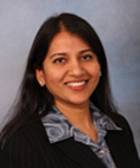(NEW YORK, June 28, 2013) This week the Supreme Court in a 5-4 ruling, rendered its opinion in Shelby County v. Holder, 570 U.S. __ (Jun. 25, 2013). The Shelby decision involved Section 4 of the Voting Rights Act of 1965.* Section 4 of the Act established a “coverage formula” to determine which states and local governments properly fall under Section 5 of the Act, and thus were required to get approval before changing their voting laws. The justices ruled that Section 4 of the Act is unconstitutional, and that the formula, which has been used for decades, can no longer be used to establish preclearance requirements. Chief Justice John G. Roberts, who delivered the Court’s opinion stated: “Our country has changed, and while any racial discrimination in voting is too much, Congress must ensure that the legislation it passes to remedy that problem speaks to current conditions.” In her dissent, Justice Ruth Bader Ginsburg stated “the Court today terminates the remedy that proved to be best suited to block that discrimination.” Justice Ginsburg’s dissent articulates the continued need for Section 5 preclearance for those states with poor voting rights records, and noted that in July 2006, the House and Senate passed the reauthorization of preclearance by overwhelming margins (House 390 to 33; Senate 98 to 0).
The ruling has already had potentially adverse consequences. Shortly after the decision, Texas announced that a voter identification law that had previously been blocked is now free to take effect immediately. Also, redistricting maps will no longer need federal approval, and “changes in voting procedures in places that had been covered by the law, including those concerning restrictions on early voting, will now be subject only to ‘after-the-fact’ litigation.” See “Supreme Court Invalidates Key Part of Voting Rights Act,” New York Times, June 25, 2013.
Attorney General Eric Holder expressed his disappointment in the decision and stated: “Let me be very clear: we will not hesitate to take swift enforcement action – using every legal tool that remains available to us – against any jurisdiction that seeks to take advantage of the Supreme Court’s ruling by hindering eligible citizens’ full and free exercise of the [voting] franchise."
Amistad echoes the disappointment of the nation’s leaders with the Supreme Court’s decision.
Considering that Long Island is the home of the seminal voting rights decision Goosby v. Town of Hempstead, the organization would be remiss if we did not declare our opposition to rulings that potentially marginalize voters of color. In Goosby, a federal judge ordered the Town of Hempstead to replace its at-large voting system with six geographic districts, stating that the system then in place “invidiously excludes Blacks from effective participation in political life.” The Goosby Second Circuit decision is available at this link: http://caselaw.findlaw.com/us-2nd-circuit/1437220.html.
Amistad, an affiliate of the National Bar Association (the “NBA”) fully intends to stand alongside the NBA in its efforts to bear pressure on policy makers and on Congress to enact a viable Section 5 coverage mechanism that deals with continuing impediments to the fundamental right to vote. We stand in solidarity with organizations committed to ensuring that the right to vote is not impeded for anyone, particularly various members of communities in our backyard.
Submitted on behalf of the
Amistad Institute of the Amistad Long Island Black Bar Association
*The Court’s complete opinion is available at this link: http://www.documentcloud.org/documents/717250-supreme-courts-voting-rights-act-decision.html
****
The Amistad Long Island Black Bar Association was founded in 1996. Formerly, the organization was known as the Amistad Suffolk Black Bar Association before it expanded to both the Nassau and Suffolk regions. Amistad was created to foster community, professional development, and growth among attorneys of color in the Long Island area.
Amistad is an affiliate of the National Bar Association.




